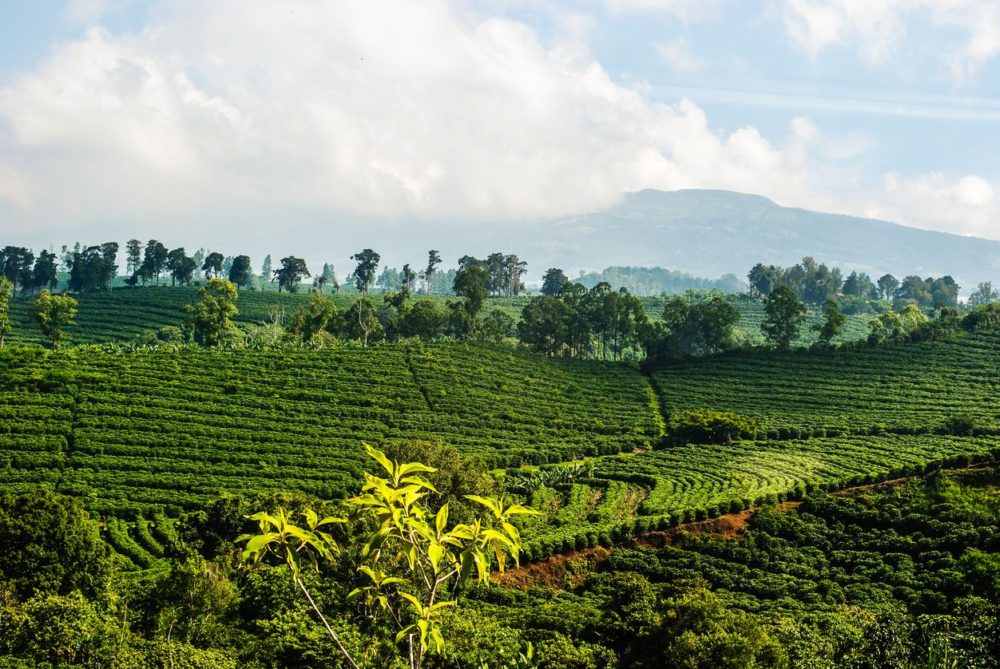Tropical regions cover roughly 40% of the earth’s surface and are home to about 40% of the world’s population. Nowadays, these regions also bear some of the worst impacts of climate change in the form of rising temperatures, floods and extreme changes in the weather. All of this affects tropical agriculture, food production, and the livelihoods connected to it.
London-based venture creator Deep Science Ventures (DSV) is in the midst of trying to build more resilient agricultural economies in these regions, starting in Costa Rica.
The firm recently teamed up with Costa Rica’s CRUSA Foundation to launch the Tropical Agriculture & Bioeconomy Initiative (TABI). The national program will create agrifoodtech companies to help push Costa Rica’s economy towards decarbonized, regenerative, and circular bio-economies. The concepts and models designed in this program will ideally be applicable to other tropical regions of the world in the near future.
“The goal has been to figure out how to start companies at Deep Science Ventures, but then to make a landing pad to start bio-economy companies in that wider Latin American region,” Edward Perello, associate director for agriculture at DSV, tells AFN.
On background:
DSV creates companies to address “people and planetary outcomes,” says Perello. The firm builds these companies in four sectors: agriculture, climate, computation and pharmaceuticals.
Within the agriculture sector, the firm focuses on what it calls “restorative cultivation”. This includes technologies and processes that restore and regenerate soils and species rather than solely extract from them.
The original inspiration for a Costa Rica program actually came from Scotland. In 2020, DSV launched its Food & Agriculture Science Transformer (FAST) program in partnership with the University of Edinburgh. While that program continues, some of its limitations quickly became apparent.
“I realized a lot of concept companies we were developing would never make sense to start in Edinburgh,” Perello explains. “It’s cold. You don’t get certain crops there. What was more useful was to consider what problems existed in a country that are representative of larger problems overseas.”
The case for Costa Rica:
Perello calls Costa Rica “an excellent laboratory country” for DSV and TABI’s mission.
Costa Rica sits in the transition zone between North and South America. This geographical positioning makes the country a meeting ground for species from both continents, and consequently one of the most biodiverse regions on the planet. No less than 12 different ecosystems sit within its borders, which contain a variety of tropical forests, mangroves, wetlands, mountains and coral reefs, among other landscapes. Roughly half a million species — or about 5% of all species on earth — call Costa Rica home.
The country also has a long history of government commitment to the environment. It is the first tropical country to have reversed deforestation, thanks to a government-led initiative. And in 2019, The United Nations Environment Programme awarded Costa Rica the Champions of the Earth award for policy leadership.
“Because Costa Rica is a really wild country in terms of its biodiversity, its range of agricultural exports, and human resources, a lot of problems that you find in Costa Rica are representative of problems in the larger tropics,” says Perello.
He believes that if DSV can build companies to solve problems in Costa Rica, those companies will be able to expand overseas to other similar countries quickly.
How TABI works:
The TABI program aims to create companies that can respond to the needs of farmers and communities in tropical ecosystems. At the same time, these companies must aim to both protect biodiversity and restore ecosystems.
TABI will build companies in the following four areas:
- Thermal adaptation technologies: The right tech could help coffee plants adapt to rising temperatures and avoid crop migration and deforestation to new areas. These concepts could be applied to other crops in the future.
- “21st century” plant breeding: Biotechnologies can accelerate plant breeding to include climate adaptation traits and those that support the circular bio-economy.
- Biomass conversion for bio-economies: This involves converting agricultural biomass into materials that can be used for biofertilizers, bioplastics, and other sustainable materials.
- Composite wood materials: High-performance composite woods sourced from biomass and non-woody plants would reduce developing countries’ reliance on imports, boost circular economics, and reduce the number of trees cut.
DSV says it has detailed concepts for new companies in each of the areas and is recruiting founders to work in Costa Rica.
Founders need not have a prior idea or IP. DSV and its partners will support the founders as they work over 12 months to identify “the optimal solutions for a given area.”
Additional partners include EARTH University and the Tropical Agricultural Research and Higher Education Center (CATIE). CR BioMed the Costa Rican biotechnology, medical device, and life sciences cluster, and CINDE, the Costa Rican Investment Promotion Agency, will also support.
On “regenerative agriculture”:
Perello is careful about using the term “regenerative agriculture” to describe the Costa Rica project’s goals.
“When we talk about regenerative agriculture, the thesis is around what we call ‘restorative cultivation,’” he says.
This includes not just sustainable farming practices like cover cropping but also bio-production, fermentation, and controlled environment agriculture, to name a few. Parello says he is inspired by the principles of regenerative agriculture “without necessarily having to subscribe to the intense ideology that can [keep] certain technologies from being used.”
At the end of the day, the whole point of TABI is about leaving the planet better in better shape than one found it.
“We’re trying to pay back into ecosystem services,” he says. “So that any kind of agricultural practice is leaving the ambient environment in a better condition, and certainly not taking away from it.”





